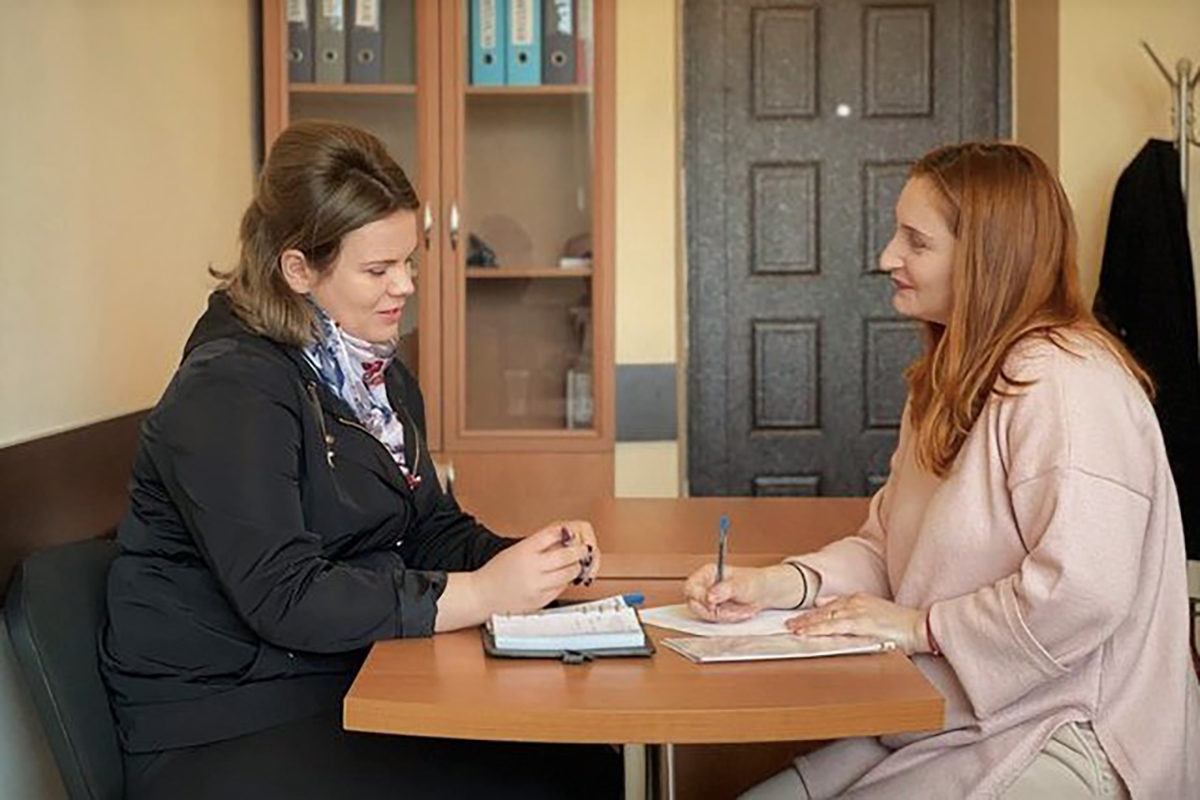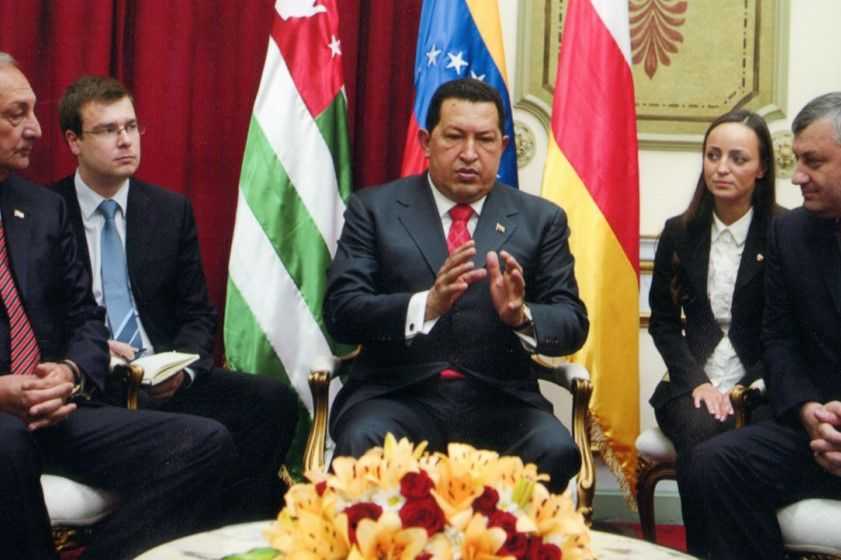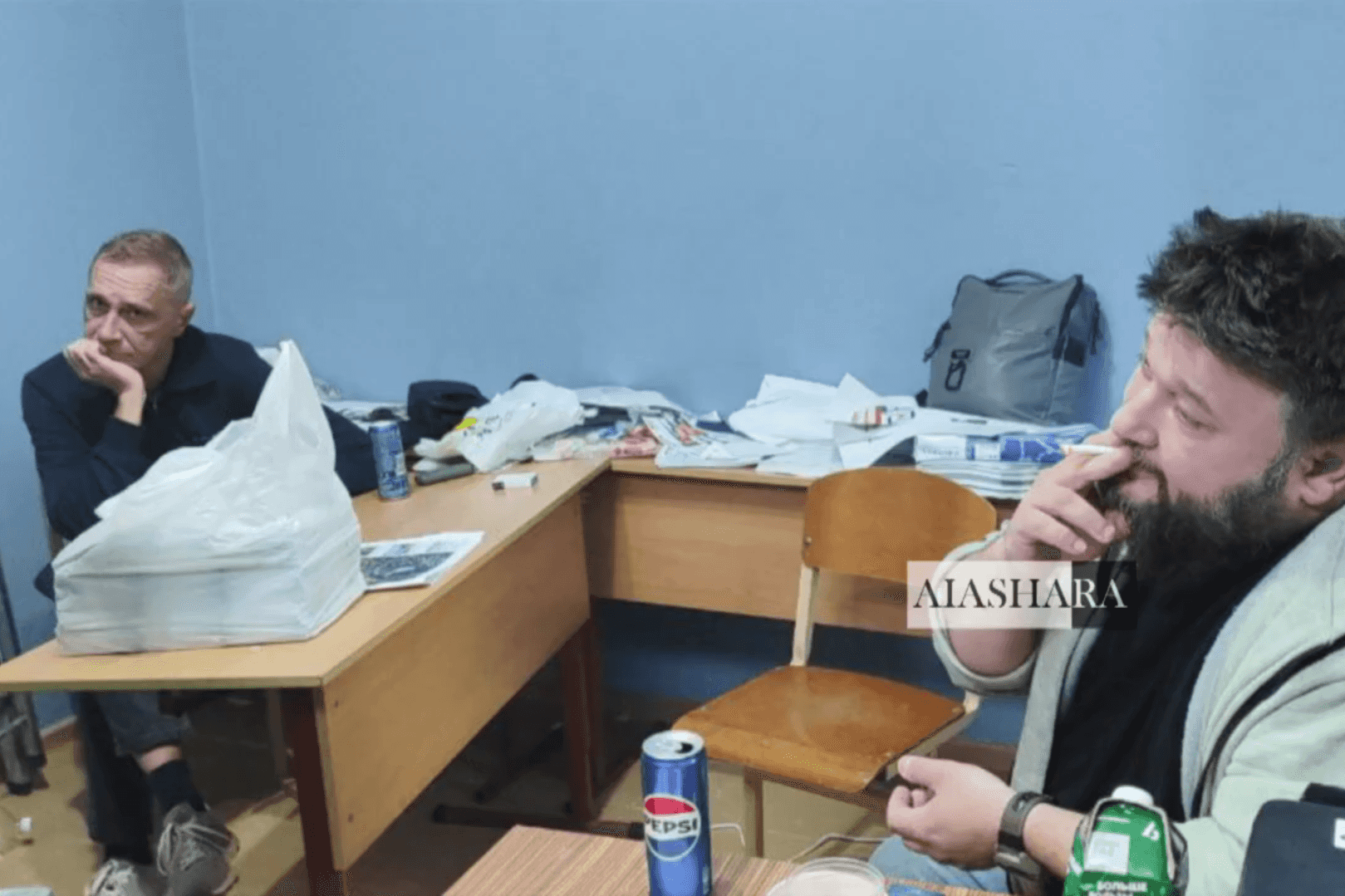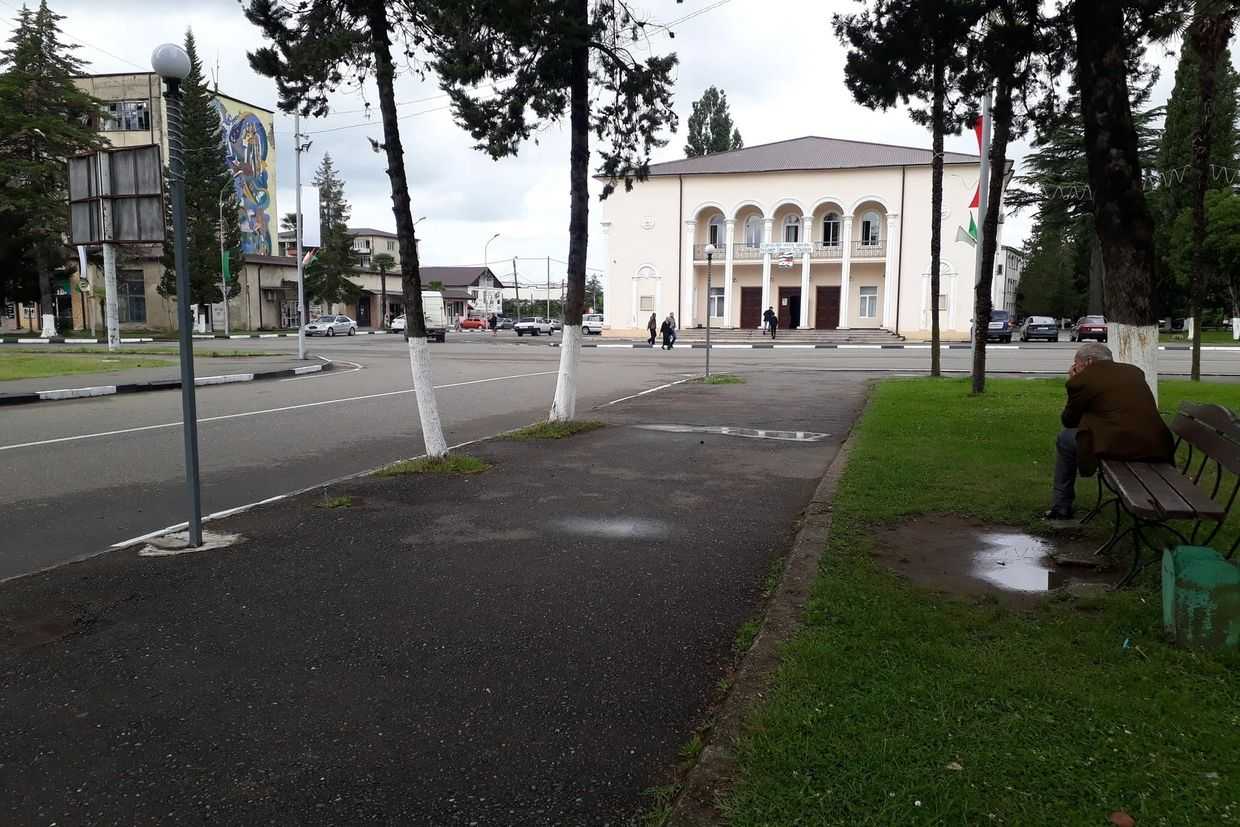
There is no legislation protecting people from domestic violence in Abkhazia, nor are there any shelters for victims. Despite this, human rights activists remain committed to protecting victims and hope that changes in the law could make a difference for the better.
Once a month Maktina (not her real name) visits the charity organisation Kiaraz, which helps large families to buy food and baby products. She carries the heavy bags to the bus stop and then home alone; she does not expect help from her husband.
Until around a year ago, her husband, an alcoholic, beat her and taunted their children.
Seeing what was happening, employees of the Kiaraz approached the head of the village where Maktina lives as well as the village elder to ask them to intervene. They responded and took him to the clinic, where the man received treatment for alcoholism, which they also paid for.
For the last year, Maktina says her husband has stopped beating her; but she is still much more relaxed when he is not at home.
There are no institutional mechanisms to assist victims of domestic violence in Abkhazia, or even legislation to protect families from an abuser or punish them. In such a situation, informal connections with influential people, as in Maktina’s case, are often the only way to end the violence.
Silent women
In 2017, the Social Support Service began operating in Abkhazia with the support of UNICEF. It is the only organisation keeping statistics on domestic violence. In 2020, social workers encountered around 400 cases.
But according to the services’ head, Alina Bazba, these figures are far from the real picture.
‘Social workers mostly learn that there is an abuser in the family who systematically beats the mother, children, or commits other violence by monitoring the conditions in which children live or investigating why children do not go to school,’ she Bazba tells OC Media.
She says that of the 400 cases in 2020, the service identified 275 cases in this way, with around 120 more being discovered after an appeal from the victims or those close to them.
‘Women come to us on their own only in extreme cases’, Bazba says. ‘Few are ready, as they say, to air their dirty linen in public, it is considered shameful here.’
Kama Gopia, a social activist and former head of Kiaraz, also said that women usually hid family problems, but were often willing to open up if someone took a sincere interest in their experiences.

According to Bazba, social workers have few mechanisms to prevent abuse, mostly conducting preventive conversations with the aggressors.
‘Often they [the abusers] do not know how backward our legislation is, and we use this.’ says Bazba. ‘We tell them that they could be very seriously punished for such behaviour, and they believe it. This allows you to somehow control their aggression’.
Under the current legislation, the maximum punishment that abusers are often subject to is 3–15 days administrative arrest for violence.
As there are no crisis centres in Abkhazia, women and children have nowhere to go to escape their abusers. In the most serious cases, temporary housing is found by the heads of local administrations; in some cases, the victims have even stayed with the village heads themselves.
‘We have very responsive people, and this saves most situations’, Bazba says.
‘Imposing other people’s values’
Despite resistance, attempts are being made to amend the law to provide more protections.
Said Gezerdava is a lawyer and one of the authors of a draft law on domestic violence that was submitted to parliament in 2019. Gezerdava tells OC Media that the law would aim to provide mechanisms to protect victims and prevent domestic violence.
It would also assign responsibility to self-government bodies, police, and medical workers for dealing with cases of domestic violence. Crisis centres could also emerge with the adoption of the law, Gezerdava hopes.
However, activists and human rights defenders that spoke with OC Media remain sceptical that the draft will be considered by parliament any time soon.
They said parliament was currently preoccupied with other bills that were being more actively lobbied, such as regulation of cryptocurrency mines and anti-corruption legislation, and that even these drafts were not being voted on due to disagreements.
The head of the Association of Women of Abkhazia, Natela Akaba, and Human Rights Commissioner Asida Shakryl, first approached parliament with the initiative to develop a law on domestic violence in 2018.
Akaba recalls how Natalie Smyr, the only woman MP, said at the time that ‘there is no point in adopting a law that will not work’. A male parliamentarian accused the pair of ‘imposing other people’s values’ on Abkhazia.
Looking back now, Smyr says she has reconsidered her opposition. She told OC Media that she now believes that such a law should be considered, especially given the emergence of ‘more and more egregious cases’ of domestic violence in recent years.
[Read on OC Media: Domestic violence in Abkhazia: an unspoken truth ]
For ease of reading, we choose not to use qualifiers such as ‘de facto’, ‘unrecognised’, or ‘partially recognised’ when discussing institutions or political positions within Abkhazia, Nagorno-Karabakh, and South Ossetia. This does not imply a position on their status.








